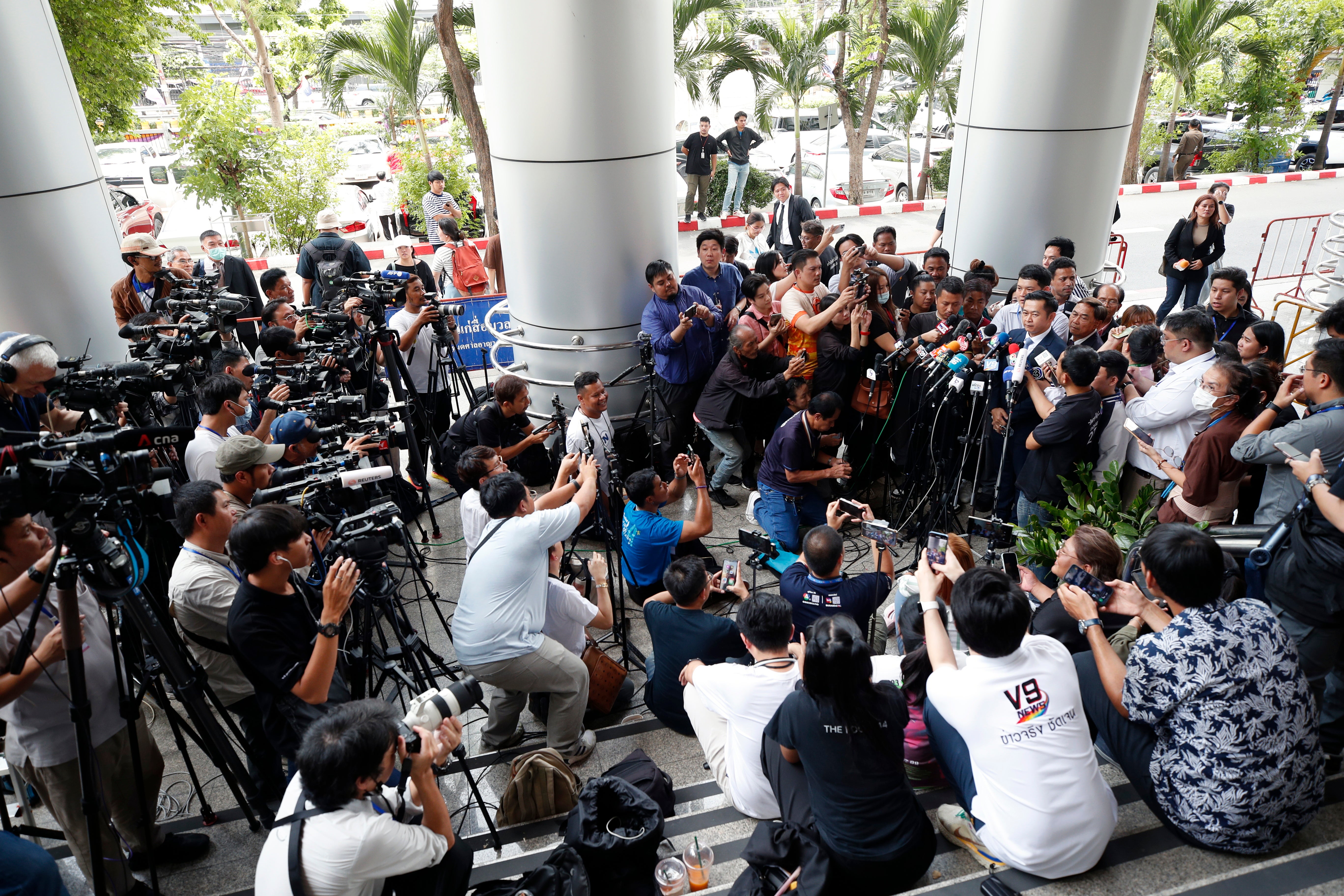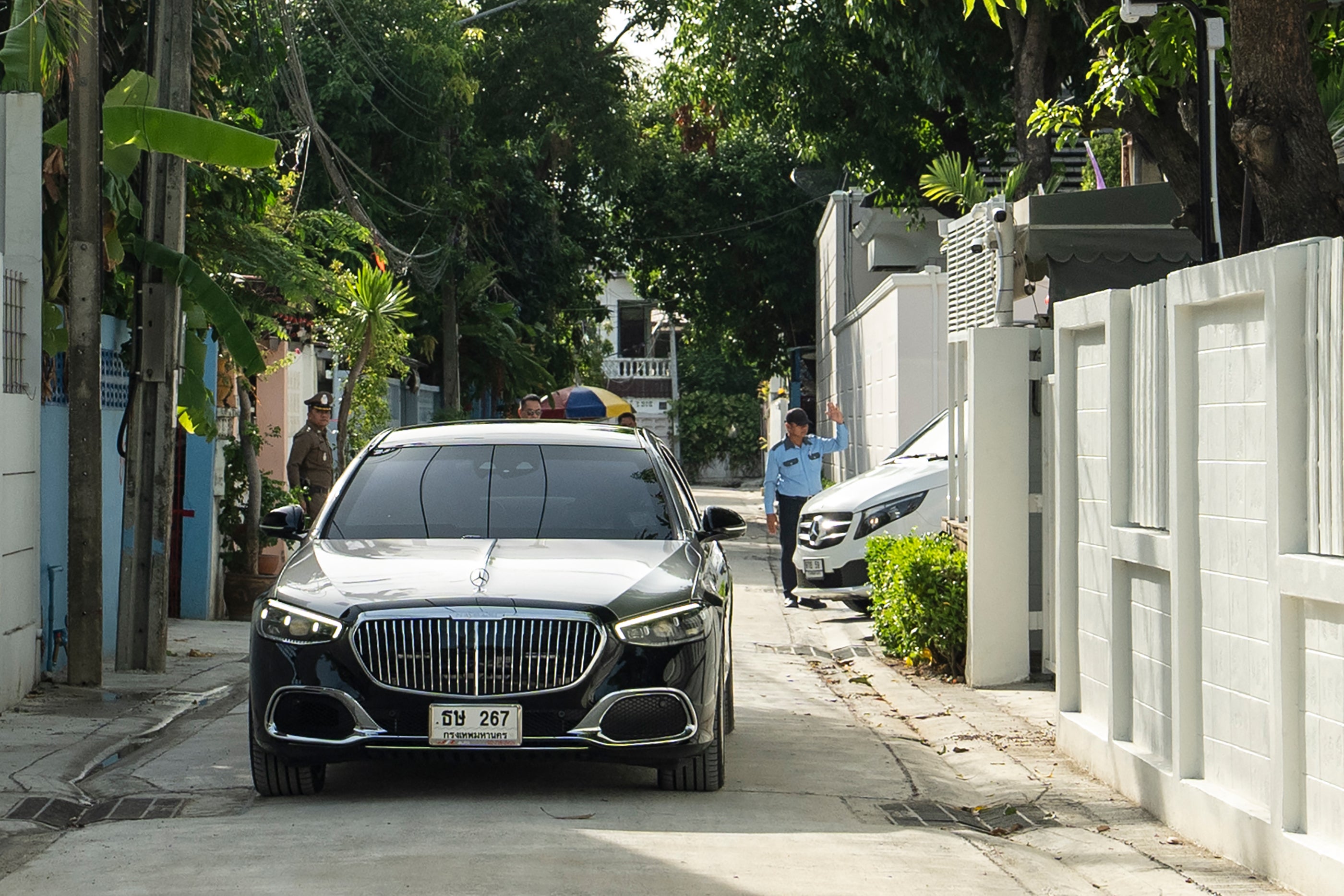Former Thailand PM indicted in royal insult case as legal battles deepen political crisis
Thaksin Shinawatra faces up to 15 years in jail if convicted
Your support helps us to tell the story
From reproductive rights to climate change to Big Tech, The Independent is on the ground when the story is developing. Whether it's investigating the financials of Elon Musk's pro-Trump PAC or producing our latest documentary, 'The A Word', which shines a light on the American women fighting for reproductive rights, we know how important it is to parse out the facts from the messaging.
At such a critical moment in US history, we need reporters on the ground. Your donation allows us to keep sending journalists to speak to both sides of the story.
The Independent is trusted by Americans across the entire political spectrum. And unlike many other quality news outlets, we choose not to lock Americans out of our reporting and analysis with paywalls. We believe quality journalism should be available to everyone, paid for by those who can afford it.
Your support makes all the difference.Thailand’s former prime minister Thaksin Shinawatra has been indicted for defaming the monarchy, a development that threatens to deepen the political crisis in the country.
Mr Shinawatra, who was ousted from power in a coup 18 years ago, was granted bail shortly after the attorney general formally indicted him, avoiding pre-trial detention.
The indictment comes as incumbent prime minister Srettha Thavisin faces potential disqualification.
The royal insult case, filed in 2015, is one of many filed against the billionaire politician who returned to Thailand last year after 15 years in self-imposed exile.
He has been charged under the country’s lese majeste law, one of the most stringent in the world, which prohibits offending or showing disrespect towards the monarch or another sovereign authority. The law carries a maximum jail sentence of 15 years for each perceived insult.
Mr Shinawatra, 74, is seen as the de facto leader of the Pheu Thai government, which was formed in 2023 after a messy general election.
He has maintained a high profile since returning home, travelling the country and making public appearances and political observations that could upset powerful figures in the establishment.
Mr Shinawatra’s indictment could unravel a suspected agreement that allowed Pheu Thai and a coalition of pro-royalist and military-aligned parties to take power, facilitating the former prime minister’s return from exile.

A Bangkok court gave bail to Mr Thaksin but prohibited him from leaving the country without permission.
Mr Shinawatra was charged after he gave an interview in Seoul in 2015 that prosecutors claimed violated thelese majeste law.
The matter was not pursued at the time as the former prime minister had gone into exile in 2008 to escape punishment in other cases that he claimed were politically motivated.
However, last month, the attorney general decided to go ahead claiming there was enough evidence for a trial.
Mr Shinawatra has denied the charges.
“The case is baseless, it’s fruit from a toxic tree,” he told reporters last month.
“It’s an example that shows how charges are abused after a coup.”
Mr Shinawatra is also currently on parole following a one-year jail sentence for corruption. He is set to be released after his royally commuted jail term concludes in August.
He was the prime minister of Thailand from 2001 until his government was overthrown in a coup in 2006.
Meanwhile, the country’s Constitutional Court, the bulwark of the royalist establishment, held a hearing on two petitions involving the incumbent prime minister and the opposition Move Forward party.
Mr Thavisin is being investigated for appointing a cabinet member imprisoned for bribery. If found culpable, Mr Thavisin could be forced out as the prime minister.
The cases were brought by a group of 40 senators who alleged “a serious violation of ethical standards”.
The pro-democracy Move Forward party could disband their campaign to amend the country’s royal insult law following a complaint by the Election Commission.

Thitinan Pongsudhirak, a political scientist at Bangkok’s Chulalongkorn University, told Reuters that a single petition can bring down an elected government or oust a prime minister, outlining the power of courts.
“There’s a judicial assertiveness that has been damaging to Thailand, subverting popular will and popular mandates,” he said.
“The political parties and representatives that voters have chosen are being systematically and repeatedly stymied.”
The Move Forward party won most seats in the last election but could not form the government after the runner-up, Pheu Thai, party secured allies.

Join our commenting forum
Join thought-provoking conversations, follow other Independent readers and see their replies
Comments